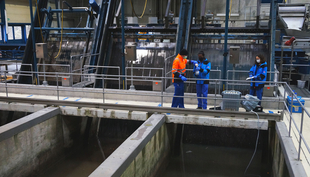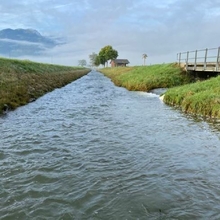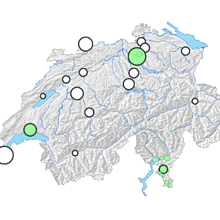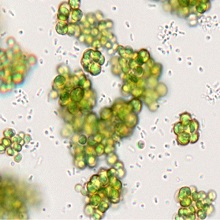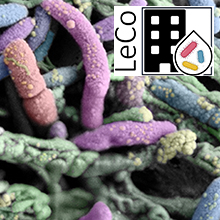Department Environmental Microbiology

Environmental Microbiology
Our research focuses on microbial life and activities in the environment. We strive to understand the basic rules and principles that govern the functioning of microbes and microbial communities, and then apply those principles to solve pressing applied problems.
Selected Publications
Drinking Water Microbiology: A perspective on the multidisciplinary research directions required to deal with Legionella in engineered water systems.
Microbial Systems Ecology: Article describing how marine bacteria regulate enzyme secretion and cellular behavior to achieve degradation of complex polysaccharides in the ocean, an important process in the global carbon cycle.
Microbial Community Assembly: Article showing that phage predation can cause a kill-the-winner dynamic that promotes the spread of antibiotic resistance.
Pathogens and Human Health: Article on "Mapping safe drinking water use in low- and middle-income countries". An estimated 4 billion people lack access to safely managed drinking water, with fecal contamination of household water supplies as the primary limiting factor.
Microbial Specialized Metabolism: Over 2/3 of pharmaceuticals are mainly excreted through urine. Most studies have focused on the gut microbiota, neglecting biotransformations in urinary by the urinary tract microbiota, which we investigate in this study.

